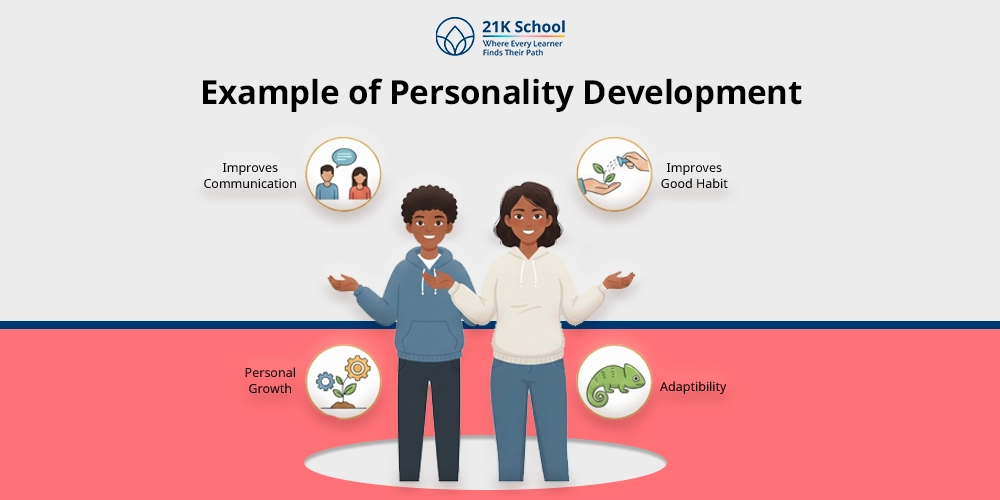
Stage fright is a natural occurrence and yet, are you aware of the thing you can do to overcome it?
Performance anxiety or stage fright can also be known as stage fear. Stage fright is not something extraordinary, and everyone experiences some little bit of it. However, extreme stage fear disrupts the performance of the students both in terms of academic and social skills .
This interferes with their education and communication skills as well. Whether you are going to deliver a speech to a crowd of people at your school, dance performance, or even a presentation at a meeting, the fear of being judged or committing a mistake may be terrifying.
This anxiety may cause physical effects like shaky feelings, sweats, racing heart and even blank memory. Nevertheless, effectively designed strategies or techniques like meditation, exercises, mindfulness, growth mindset , positive self talk etc will help students to easily overcome stage fright.
Contents
- 1 What is Stage Fear?
- 2 Top 13 Ways on How to Overcome Stage Fear
- 2.1 1. Practise
- 2.2 2. Reduce Stress
- 2.3 3. Don’t Panic
- 2.4 4. Visualize Success
- 2.5 5. Breathing Exercise
- 2.6 6. Meditation
- 2.7 7. Quick Exercise
- 2.8 8. Promote Positive Self Talk
- 2.9 9. Practice Public Speaking
- 2.10 10. Be Positive
- 2.11 11. Connect with your Audience
- 2.12 12. Be Mindful
- 2.13 13. Don’t Fear Silence
- 3 Conclusion
What is Stage Fear?
Stage fear, also called stage fright or performance anxiety, is the nervousness or anxiety that one experiences in front of the audience or in performing in front of an audience. It usually happens when a person is making a speech, performing in a play, singing, dancing, or playing a musical instrument.
Individuals with stage fright might experience such symptoms as heart beating rapidly, sweating, trembling, dry mouth or a shaky voice. Stage fear is usually caused by apprehension of being judged, lack of confidence, inadequate preparation, bad past experiences or perfectionism.
Another reason that makes people think a lot is that people are always worried about what the audience thinks about them, that makes the anxiety even greater. Nonetheless, stage fears are controllable and can be overcome using the appropriate methods.
Top 13 Ways on How to Overcome Stage Fear
Performance anxiety or stage fear is an ordinary phenomenon that most individuals experience when of all ages. It is usually based on the fear of being judged or committing errors in the presence of other people.
Nevertheless, through proper tactics, the fear of the stage can be controlled and even avoided altogether. The following are the means in which stage fear can be conquered.
1. Practise
Confidence is based on practice, and students are also expected to practise in order to eliminate stage fear. The more the students are well versed with what they are doing, the less their mind needs to be concerned with what is going to happen next.
The students are supposed to practise the speech or performance in various places, by themselves, in front of a mirror, among friends as well as recording themselves. Repeating this makes the muscle memory and makes them internalise their content to this extent.
2. Reduce Stress
Stage fright can be enhanced by high levels of stress. Hence, before a performance, one should consider the habits that minimise students stress levels on an entire basis. Sleeping well, eating well, and being hydrated can have a positive impact on the body and the mind.
It is also helpful to avoid caffeine or sugar, in case they make a person restless. Light stretching or relaxation before going on stage, like yoga, can also be some help in releasing physical tension.
3. Don’t Panic
It is absolutely natural to feel nervous before a presentation; students are advised that they should not panic in any case. One should be able to recognise anxiety as a normal emotional response and then they are able to remain composed.
Deep breathing and reminding oneself of the preparation and ability can relax the mind. When the panic hits, it calms down immediately when the person starts talking, and it is therefore important to remain stable in the early stages.
4. Visualize Success
The tricks of visualisation are a good mental strategy that can enable students to counter stage fear effectively. It is possible to picture the successful speech imagining them speaking in a confident tone and receiving the positive feedback of the audience.
This affirmative visualisation is setting the mind to perform as per such an image, aiding in confidence and loss of fear.
5. Breathing Exercise
Another method that can be used to manage stage fear is through breathing exercises. Adequate breathing is crucial in managing stage fear. Shallow breathing is the result of anxiety and elevates heart rate and tension.
The body and mind can be calmed by practising deep breathing, which involves taking a few seconds to inhale, deep breathing by breathing in through the nose, retaining the breath, and exhaling it slowly via the mouth. This can be done by exercising a few minutes before the performance to get back into shape and concentration.
6. Meditation
Another effective strategy to prevent stage fear is meditation as it is known to make people gain the abilities of calmness, concentration and balance of emotions as well as emotional intelligence. However, frequent meditation helps alleviate stress and anxiety because it helps one be mindful of themselves.
Individual brief meditation sessions prior to the performance can also be used to calm the mind, clear the mind, and focus the speaker on the preparations to remain calm in the performance.
7. Quick Exercise
Physical exercise, light exercises before the performance, will release accumulated energy and decrease nervous tension. The simplest exercises like stretching, rolling the shoulders, or a few steps, can help to start blood circulation and loosen the muscles.
Endorphins are also released during physical movement and naturally improve the mood and level of confidence. This is a good approach that enhances stage confidence with better strategies of education among the students.
8. Promote Positive Self Talk
Stage fear can be easily controlled through positive self-talk. In order to overcome stage fear using positive self-talk, it is better that you change negative thoughts into positive thoughts.
Always do this to gain confidence and use it together with other techniques such as visualising success, concentrating on what you are saying and breathing in deeply to get rid of anxiety.
9. Practice Public Speaking
One of the strategies to overcome stage fear and public anxiety is to give a speech in front of people. The students are to prepare their topic well to overcome stage fear by practising their topic. The students are to rehearse their speech various times in various forms and apply relaxation methods.
Stage fear can also be overcome by practising in front of a mirror or recording yourself to enhance your body language, and rehearsing in front of your friends or family to obtain feedback.
10. Be Positive
A positive attitude may change the whole experience of public speaking. Rather than taking it as a test or a threat, it is best to regard this as an occasion to exchange ideas and also meet people.
Errors are supposed to be considered as learning but not failure. Being positive minimises the stress and makes the speaker redeem gracefully in the event of making minor mistakes throughout the presentation.
11. Connect with your Audience
Switching attention to the listeners is amongst the best means of alleviating nervousness. When speakers focus on value delivery, listener engagement or impartation of helpful information, they no longer worry about their image.
People tend to like and like honest speakers, and not flawless speakers. It is important to remember that the goal of a presentation is not perfection, but communication; thus, the speaker is more relaxed and connected.
12. Be Mindful
Mindfulness practices are the state of awareness of the moment. Mindfulness is about the speakers being in the present rather than thinking of the errors they have done in the past or what will happen in the future, what they are saying, what the audience is saying and how they breathe.
Being conscious will avoid overthinking and will keep anxiety at a manageable level. It enables the speaker to answer freely and sure enough when performing.
13. Don’t Fear Silence
You must not be afraid of silence; you must accept it as a normal and powerful constituent of delivering a speech to people. Breaks can be used to collect your thoughts, to give the audience a chance to digest information or to just have a moment of silence and have a deep, calming breath.
The most important aspect of being comfortable enough to allow a silence to occur involves preparation and practice; this way, you are likely to make your presentation even more effective and have control over your performance anxiety.
Conclusion
The stage fear is not a strange emotion because it befalls most of individuals, but it can be managed and conquered by continuous practise and proper attitude towards it.
By attending regular classes, being positive, focusing on the audience, and engaging in learning methods , such as meditation, breathing exercises, and mindfulness, the students will be able to feel confident and reduce anxiety.
It is also worth keeping in mind that being nervous is absolutely normal; it only means that you are worried about doing a good job. Stage fear can be transformed to a state of stage confidence through patience and perseverance.



